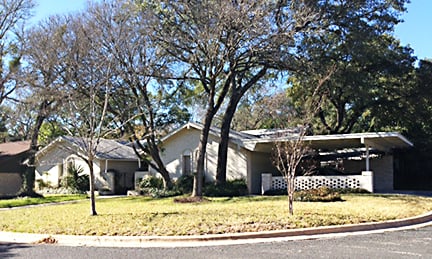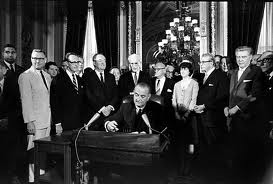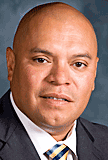But notes the challenges ahead with a City Council composed of district representatives
An extended standing ovation, completes with whoops and hollers, erupted Wednesday night when the League of Women Voters Austin Area’s Francis McIntyre announced to a crowd of some 125 people at the Green Pastures restaurant, “I present to you the first Independent Citizens Redistricting Commission in the history of Austin.”
Each of the 14 members of the Independent Citizens Redistricting Commission (ICRC) was honored with an award as McIntyre called them one-by-one to step in front of the crowd. (See list of members below.)
The League’s State of the City 2014 dinner celebrated voter approval of Austin’s new form of city governance that will be launched following the first-ever election this coming November of council members from geographic districts that were drawn by the ICRC.
The Proposition 3 ballot measure to establish 10 council districts drew 146,496 votes in the November 6, 2012, election, besting by more than 24,000 votes the alternative plan put on the ballot by council members opposed to the 10-1 plan.

Featured speaker Steve Bickerstaff—the founder of the Bickerstaff Heath law firm and the attorney who drafted the initial plan that wound up as Proposition 3 on the ballot through the grass-roots petitioning of Austinites for Geographic Representation—called the victory “an extraordinary example of the ability of people to take control of government and an exercise in democracy.”
Bickerstaff praised Linda Curtis, the sparkplug campaign coordinator for Austinites for Geographic Representation; City Auditor Ken Mory, who was instrumental in implementing the application process for volunteers who wanted to serve on the ICRC; the CPAs who (during tax season) winnowed the 450 applications to form a pool of those best qualified to serve on the ICRC; and the ICRC members themselves for accomplishing the difficult task of holding together and drawing the boundaries of the 10 districts from which future council members will be elected.
“A lot of people thought it (the process) would crash and burn but the reality is, you did it,” Bickerstaff said. “The ICRC is extraordinary because the commissioners were willing to spend their own time and skills to make the process work.” He also noted that the ICRC’s mission was completed for less than $150,000.
While praising the ICRC’s accomplishments Bickerstaff also criticized the group for “failing to achieve transparency” in its final few weeks by not allowing oral comments and overusing closed executive sessions.
Bickerstaff noted the irony of his involvement in bringing about single-member districts, given his previous legal role in the 1980s to successfully defend in federal court the City of Austin’s at-large system of electing council members. He said he would have never endorsed the concept of single-member districts for Austin had the ballot measure not required that council districts be drawn by the ICRC—not the City Council.
“We have the distinct advantage of going to single-member districts through the elective process,” Bickerstaff said. “Most all cities move to single-member districts through the force of litigation or threatened litigation,” which creates resentment over being forced to change.
Challenges ahead in new system
But the future holds challenges for the new form of government under a 10-1 system in which only the mayor is elected by all citizens.
“A council member in a district can focus on the needs of the district,” he said, but a group of constituents may be able to elect a person of its choice and become so strong that the incumbent may not be responsive to the people of the district.
“A district could become a virtual fiefdom,” he warned.
An incumbent could also become more “accountable to the people who control the voter turnout” and that could “create extremism and lead to cronyism.” The result could be “gridlock and acrimony” Bickerstaff said.
“We can expect a tsunami of democracy and grass-roots efforts,” he said.
Bickerstaff said Austin’s system has the advantage of establishing term limits but the public should be wary of the possibility of an incumbent anointing a successor.
Another advantage that Austin has in going to single-member districts is that this city does not have the polarization that existed in other cities that went from at-large to district councils. “We have a reserve of good will and it’s important to keep that good will going forward.”
“This process will change what we expect from the mayor. It’s more important that the mayor has the ability to lead the council” and “create a consensus for decisions going forward.”
Groups that are looking to support mayoral candidates should keep these qualifications in mind, he said.
“There is no reason to underestimate the importance of what you have achieved,” Bickerstaff said. The chore of redrawing council districts again in 2021, after the next census, will be less difficult.
“The Austin model can and should be used all over the country,” he said, and Bickerstaff urged the League of Women Voters audience to make an effort to sell the idea of drawing council districts with an ICRC to other cities.
“We have the opportunity in Austin to move forward in a united way,” he said.
ICRC members honored
The ICRC members were: Magdalena Blanco, Catherine Cocco, TJ Costello, Mariano Diaz-Miranda, Rachel Farris, Stefan Haag, Harriet Harrow, William Hewitt, Henry W. Johnson, Carmen Llanes Pulido, Arthur Lopez, Ryan Rafols, Anna Saenz, and Maria Solis.
To see the final certified map of the 10 districts drawn by the ICRC, click here (warning: this document is extremely slow to load).
Related Bulldog coverage:This is The Austin Bulldog’s 51st article covering issues and activities pertaining to proposed and/or voter-approved changes to the Austin City Charter.
Austin Impact of Supreme Court Decision: Ruling on Section 5 of Voting Rights Act ends need for federal approval of council districts, June 26, 2013
Why Bother: Austin After 10-1: KLRU-TV taping draws more than 200 people for multifaceted discussion of what future holds, April 29 2013
Light Turnout for City Auditor’s Meetings: Five scheduled meetings drew fewer than ninety people, but keen interest shown among attendees, January 29, 2013
City Auditor Kicks Off Info Sessions: Drawing maps for 100 council districts attracts citizens who want to get involved, January 22, 2013
Bumpy Road to Implementing 10-1: Council refuses to pay for child care, mileage. Applications to serve taken Jan. 19 to Feb. 22, January 17, 2013
Massive Interest in Redistricting: City audtor’s forum draws standing-room crowd to brainstorm how to attract applicants, December 4, 2012
Proposed Districting Timeline Draws Flak: Redistricting expert says schedule does not allow enough time for federal approval process, December 4, 2012
Citizens Redistricting Forum December 4: City auditor invites public input for citizens redistricting panel and how best to identify applicant qualifications, November 27, 2012
Prop 3 Proponents to Monitor Implementation: Austinites for Geographic Representation form committee to help guide work on 10-1 system, November 25, 2012
City Hustles to Initiate Prop 3 Tasks: Auditor coordinating with proponents of the 10-1 plan to begin what will be a lengthy transition process, November 15, 2012
10- Plan to Rule Council Elections: Both propositions for geographic representation pass but grassroots group dominates election results, November 7, 2012
Mayor: My Commission Beats Your Commission: Mayor Lee Leffingwell lifts idea for citizens to draw council districts and undercut opposing proposition, November 2, 2012
Prop 3 Fundraising Outpaces Prop 4: Financial support for 10-1 far outstrip dollars donated for 8-2-1 hybrid, September 29, 2012
Prop 3 Proponents Question Prop 4 Legality: Civil rights attorney and two minority groups say federal preclearance for 8-2-1 is unlikely, October 21, 2012
Poll Triggers Backlash from 10-1 Proponents: Proposition 3 advocates saying Prop 4 playing dirty with a misleading poll, Prop 4 denies the charge, October 17, 2012
Proposition 4 Campaign Reports Finances: Late report indicates $2685 raised in last three months but fails to provide details about campaign expenses, October 10, 2012
Proposition 3 Campaign Reports Finances: 10-1 campaign proponents raised more than $40,000, Proposition 4’s 8-2-1 advocates’ report not submitted, October 9, 2012
Proposition 3 Rally Draws 150-200 People: Crowd hears fiery speeches by proponents of the 10-1 system for electing council members, October 8, 2012
Feisty Debate Over Electing Council Members: One panelist argues for no change to the at-large system of City Council elections, October 4, 2012
Proposition 3 and 4 Proponents Rev Their Campaigns: Raising money, organizing troops, and pushing plans for geographic representation on Austin City Council, September 28, 2012
Redistricting Need Not Be a Quintessentially Political Process: Independent redistricting commissions for U.S. states and cities, September 24, 2012
Barrientos Lampoons Prop 4 With a Fable: Other proponents of alternative plans for geographic representation push their points, September 14, 2012
Proposition 3 Advocates Falsely Accuse RECA: Group alleges ‘rumor’ of $100,000 pledge by Real Estate Council to defeat Proposition 3, but RECA says not so, September 12, 2012
No-Change Option Surfaces in Ballot Debate: Former Council Member Bob Binder opposes both options on the ballot for geographic representation, September 11, 2012
The Election Wars Have Begun: Interest in how council members elected running high, as face-off debates abound, September 9, 2012
8-2-1 Near Certain to Go on Ballot: City Council Votes on Second Reading to Put Competition Election Plan on Ballot, July 31, 2012
Hard Fought, Heartfelt Charter Decision: Charter Revision Committee Votes 8-7 to Back 10-1 Plan for Council Elections, February 3, 2012
New Restrictions Proposed for Lobbyist Fundraising: Lobbyists Can Only Give Candidates $25 But Can Collect Unlimited Contributions For Them, January 22, 2012
Committee Debates How to Elect Council: Charter Revision Committee Divided Over Pure Districts vs. Hybrid System, January 9, 2012
Thirteen Charter Changes and Counting: Charter Revision Committee’s Next Job: Tackle Plan for Geographic Representation, December 14, 2011
Council Confirms November 2012 Election Date for Charter Amendments: Resolution Ensures Citizens Initiative Won’t Force May 2012 Charter Election, November 3, 2011
Coalition Launching Petition Drive to Get on the Ballot for May 2012 Election, October 18, 2011
Broad Community Interest Focusing on How Mayor and Council Members Elected, October 4, 2011
Coalition Nearing Petition Launch for Grass-roots Council District Plan, August 24, 2011
Maps Prove Select Few Govern Austin: Forty Years of Election History Expose Extent of Disparity, August 4, 2011
Petition Launch Imminent to Force Election for Geographic Representation in City Elections, March 7, 2011








 Travis County Tax Collector Bruce Elfant said that homeowners may work out payment plans for property taxes.
Travis County Tax Collector Bruce Elfant said that homeowners may work out payment plans for property taxes.


















